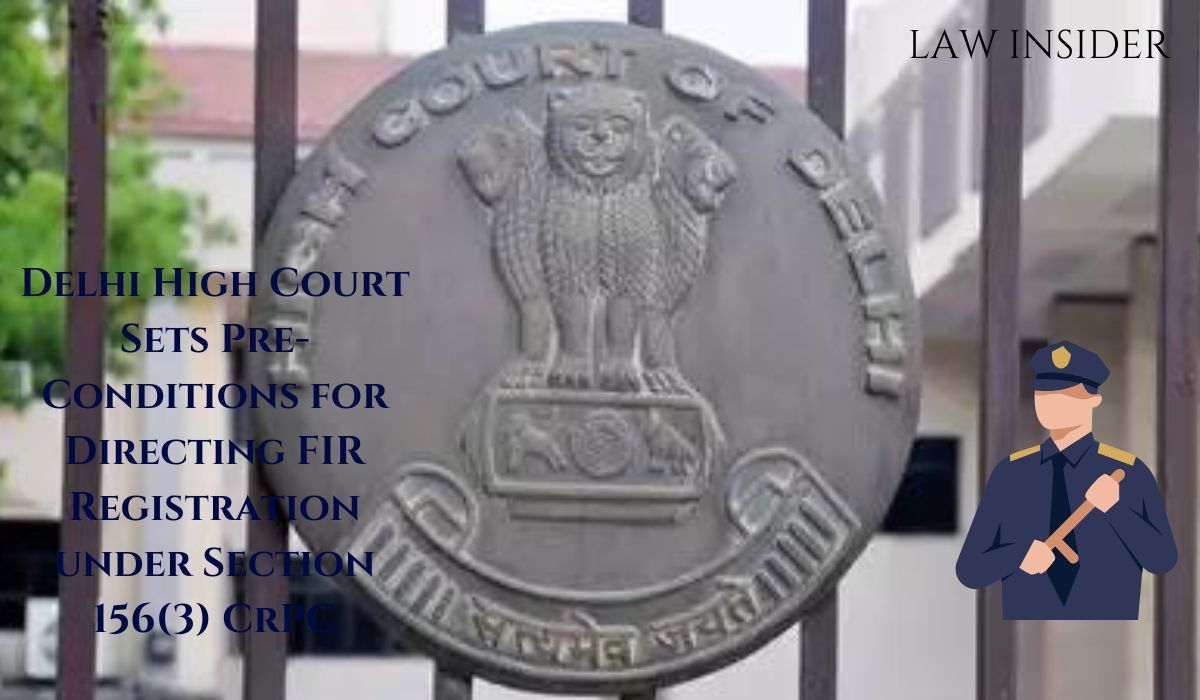LI Network
Published on: 23 July 2023 at 12:40 IST
The Delhi High Court recently ruled in favor of a petition challenging an order by a Magistrate, wherein the police were directed to register an FIR based on a complaint filed by respondent no. 1.
In its ruling, the Court established three preconditions that must be satisfied before a Magistrate can direct the registration of an FIR under Section 156(3) of the Criminal Procedure Code (CrPC). These preconditions include the disclosure of a cognizable offense, the application of judicial mind, and the necessity to pass a speaking order. The case was presided over by Justice Swarana Kanta Sharma.
According to the Court’s decision, while exercising powers under Section 156(3) of the CrPC, the Magistrate must ensure that the complaint discloses a cognizable offense and that the essential elements of the alleged offenses are prima facie satisfied.
The Court emphasized that the power vested in the Magistrate to direct the registration of an FIR must be exercised judiciously, with due application of judicial mind. Hence, it becomes incumbent upon the Magistrate to issue a reasoned order when directing the registration of an FIR.
Senior Advocate Mohit Mathur represented the Petitioner, Advocate Daniyal Khan appeared for Respondent no. 1, and Additional Public Prosecutor Satish Kumar represented the State/Respondent no. 2.
The case revolved around a complaint filed by Respondent no. 1 concerning a speech delivered by an unidentified Swami ji at a public meeting organized by the Vishwa Hindu Parishad in Delhi. The respondent alleged that the speech was provocative and had the potential to incite violence between communities.
In its decision, the Court cited the Supreme Court judgment in the case of Usha Chakraborty v. State of West Bengal (2023 SCC Online SC 90). The Court found that the impugned order lacked clarity regarding which offense under the Indian Penal Code (IPC) or any other law was disclosed from the allegations made in the complaint.
The Court also noted that the Magistrate had directed the police to investigate and ascertain whether an offense had actually been committed or not. This indicated that the Magistrate was not convinced that a cognizable offense had taken place, yet still ordered an investigation.
The Court emphasized the importance of a reasoned order, highlighting that such orders ensure impartiality and adherence to the law in judicial decisions.
Additionally, reasoned orders enable effective appellate review, as they provide the appellate court with the necessary information to assess the correctness of the lower court’s decision. Transparency and accountability in the judicial process are also enhanced through reasoned orders.
The Court stressed that the powers bestowed upon Magistrates are not absolute and unconstrained, and they must exercise their authority within the framework of established laws, procedures, and constitutional principles to prevent misuse or abuse.
Consequently, the Court allowed the Petition and set aside the impugned order, affirming the necessity for proper pre-conditions to be met when directing the registration of an FIR under Section 156(3) of the CrPC.

